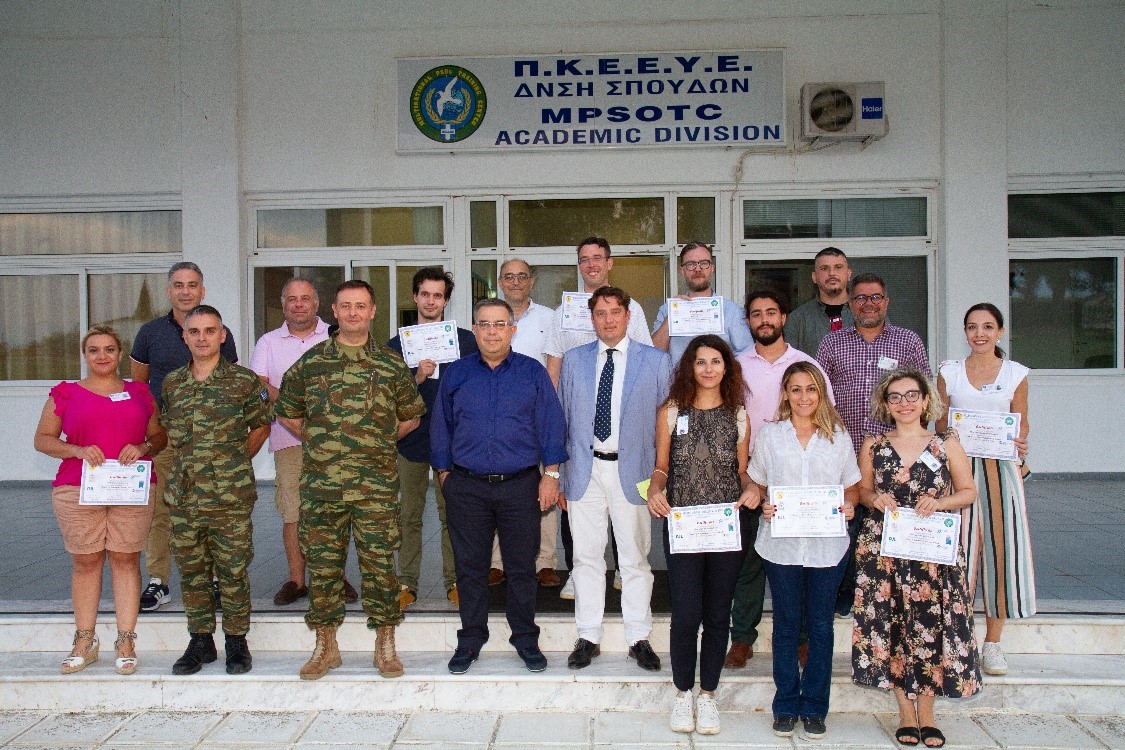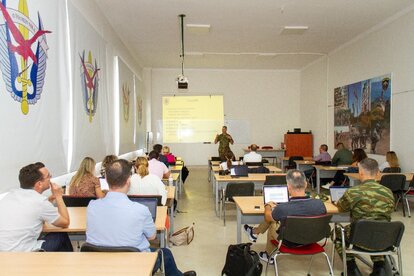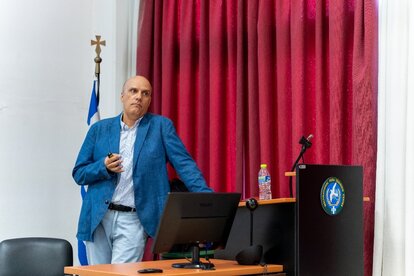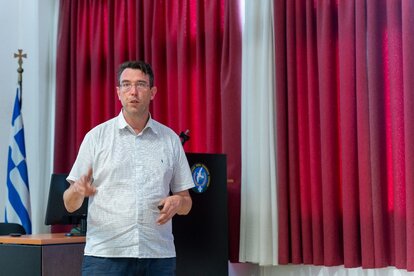Event
Safety for Journalists Training School


The International and Peace Journalism Lab of the Aristotle University of Thessaloniki took the initiative two years ago to create a pioneer training program for professionals and young journalists interested in visiting war zones, which soon proved to be extremely useful in practice for the trainees, as some of them have already been present.
Safety for Journalists (SfJ), which was temporarily suspended due to the restrictions of Covid19, was available again this year, from the 29th till the 31st of August and was organized by the International and Peace Journalism laboratory of the Aristotle University of Thessaloniki, the Jean Monnet Chair for European Integration Journalism. The training school conducted in collaboration with a number of distinguished partners and the support of the Hellenic Multinational Peace Support Operations Training Center and the Friedrich Naumann Foundation for Freedom Greece and Cyprus, as well as under the framework of the United Nations Academic Impact. The aim is to provide professionals and young students with all the necessary knowledge to face the challenges of the modern war and conflict field.
For the planning of the program, in addition to the specialized experience of those involved, research was conducted, with the support of the Friedrich Nauman Foundation, in order to record the experiences of war correspondents, as well as the needs and concerns of young people who would be interested in working as war correspondents, so that the result focuses and responds to the real needs of the participants.
On the August 29th the training opened with a welcome session, where Professor Nikolaos Panagiotou addressed the participants, making a short introduction on the background of the program, and the importance of such training. Following, the Commander of the Hellenic Multinational Peace Support Operations Training Center (MPSOTC) Colonel Gavranopoulos Thomas also welcomed the participants in the premises of the training center.
The kick off session closed by Eleni Siapikoudi, from FNF, who introduced the foundation and highlighted its support to the program.
The training session started again with professor Panagiotou, explaining the role of reporting during war and crisis. The professor was followed by Dr. Ilias Nikezis, who presented issues regarding ethics of journalism in war and conflict. After this, Major Smilianis Christos introduced hostile environment awareness to the participants (HEAT), in order to provide them with some basic knowledge on the threats they may face on the field. After a short break for lunch, the training continued with Professor Andreas Veglis’ introduction of valuable digital tools and their use.

The 30th of August sessions begun by sharing mission experiences with journalists Nikolaidis Christos and Stavros Ioannidis, from SKAI TV, that have both been present as war reporters recently in Ukraine, but in previous conflicts as well. The session attracted the interest of the participants who kept asking questions until the end. The experiences session was followed by training on self-medical care in the field, provided by the Meducation, represented by its training director, Alexandros Toumpelis. After the lunch break, the floor took Tom Keunen, the head of security of the Free Press Unlimited explained the intersection of digital and physical security and digital hygiene.
On the third day, the participants traveled to Rentina, in the premises Unconventional Warfare Center, where they received field training by Hellenic Special Forces personnel.
On their return to MPSOTC, Adrien Collin, project officer at the European Federation of Journalist, explained how international mechanisms/NGO regarding support for conflict reporters function and how they can assist them in their work. Moreover, he introduced operational planning, preparation for the assignment as well as risk assessment.
The training ended with the visit of the Secretary General of Media and Communication Dimitrios Galamatis, who address the participants, who expressed his support, highlighting the importance of the initiative. The whole training has been very fruitful, gaining positive comments by its participants and observers. Professor Panagiotou Nikolaos from his side committed on the sustainment of the action, with the next one being scheduled to take place within the first semester of 2023.

